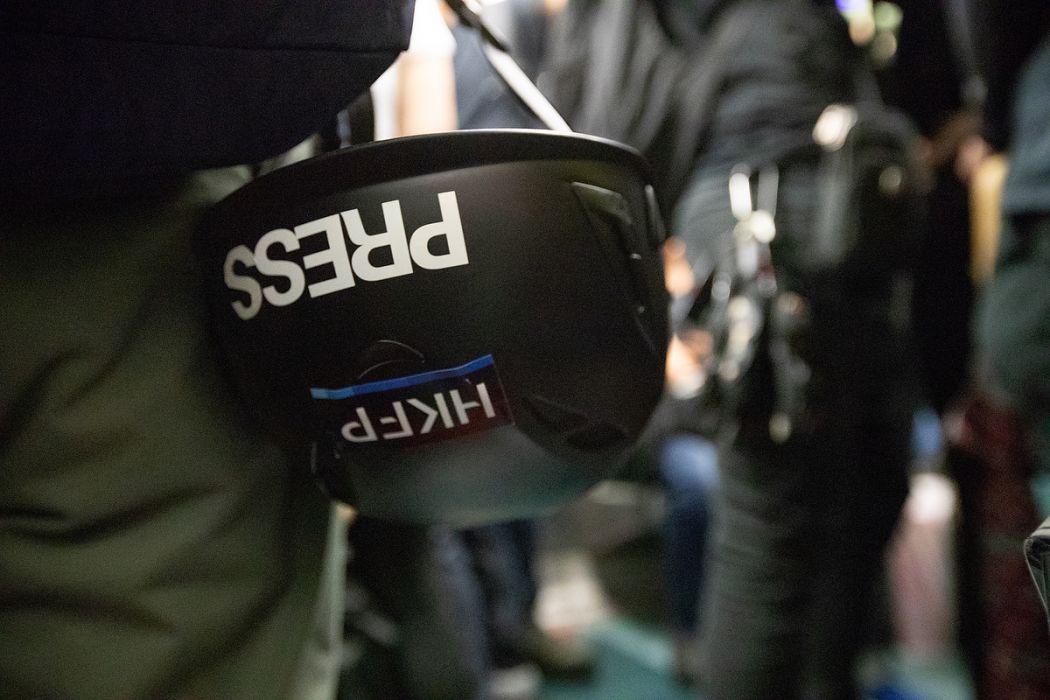No one thought it would happen quite this quickly. But now we know that freedom of assembly, freedom of expression, and all that flows from it has ceased to exist in any form recognisable to those of us who have lived in Hong Kong for any length of time.
The apologists for repression, unoriginal in their apologia, will say that statements like this are belied by the reality that even publications such as Hong Kong Free Press are still allowed to function. And they will point to the safeguards of liberty enshrined in the Basic Law.

If their point is that the level of repression in the mainland is harsher than it is here, this cannot be denied. Although day by day, the gap is being narrowed.
If they point out that the Basic Law, Hong Kong’s mini-constitution, appears to contain an unshakeable commitment to liberty, they will need to demonstrate how the PRC’s constitution is actually implemented. It says: “Citizens of the People’s Republic of China enjoy freedom of speech, of the press, of assembly, of association, of procession, and of demonstration.”
Every dictatorship of the modern age has insisted that it adheres to the highest levels of democracy. In communist states the very word “democratic” is routinely included in their official names. Thus we have the Democratic People’s Republic of Korea, a title that contains a falsehood in every word.

So we need not be distracted by form nor by the chilling narrative of the apologists, who will tolerate every violation of liberty right up the point where they too become victims. The kindergarten supporters of dictatorship in Hong Kong have been at it again, this time lauding the “leniency” of the PRC for allowing elected legislators to serve in the new and dubious interim Legislative Council.
As the white terror spreads through Hong Kong it will almost certainly succeed, at least for now, in keeping mass protests at bay. It will ensure that self-censorship in the media is even more profound, and it will cause many people to give up entirely and leave Hong Kong.
What no degree of repression can do is change people’s core values and beliefs. Those who cherish the spirit of Hong Kong will discover new and smarter forms of resistance. What we will see in the city is what has been seen in many other places where fears of the knock on the door at midnight are ever-present.

Hong Kong’s advantage is that it is filled with smart, highly adaptable people. In recent days they have expressed passive resistance to the attack on press freedom by gobbling up every copy of Apple Daily they can lay their hands on. And they have shown their solidarity by buying the shares of Next Digital, which owns the paper.
Elsewhere, responding to the ban on the slogan Liberate Hong Kong – Revolution of Our Times, people have simply held up blank sheets of paper. Everyone knows what they mean. And everyone knows the dangers of singing the protest anthem, Glory to Hong Kong, so the words of this song have also been replaced…with numbers.
There are infinite possibilities for passive and inventive resistance, which could almost be described as an art form in the former Soviet Union. One of my favourite examples is a joke from the defunct German Democratic Republic. It is about a German worker sent to Siberia. Aware of how all mail was read by censors, he told his friends: “Let’s establish a code: if a letter from me is written in ordinary blue ink, it is true; if it is written in red ink, it is false.”
After a month, his friends get the first letter, written in blue ink: “Everything is wonderful here: stores are full, food is abundant, apartments are large and properly heated, movie theatres show films from the West, there are many beautiful girls ready for an affair—the only thing unavailable is red ink.”
Let’s see if there is a run on red ink here in Hong Kong.
Support HKFP | Policies & Ethics | Error/typo? | Contact Us | Newsletter | Transparency & Annual Report | Apps
| HKFP is an impartial platform & does not necessarily share the views of opinion writers or advertisers. HKFP presents a diversity of views & regularly invites figures across the political spectrum to write for us. Press freedom is guaranteed under the Basic Law, security law, Bill of Rights and Chinese constitution. Opinion pieces aim to point out errors or defects in the government, law or policies, or aim to suggest ideas or alterations via legal means without an intention of hatred, discontent or hostility against the authorities or other communities. |
Help safeguard press freedom & keep HKFP free for all readers by supporting our team

More HKFP OPINION:
HKFP has an impartial stance, transparent funding, and balanced coverage guided by an Ethics Code and Corrections Policy.
Support press freedom & help us surpass 1,000 monthly Patrons: 100% independent, governed by an ethics code & not-for-profit.










